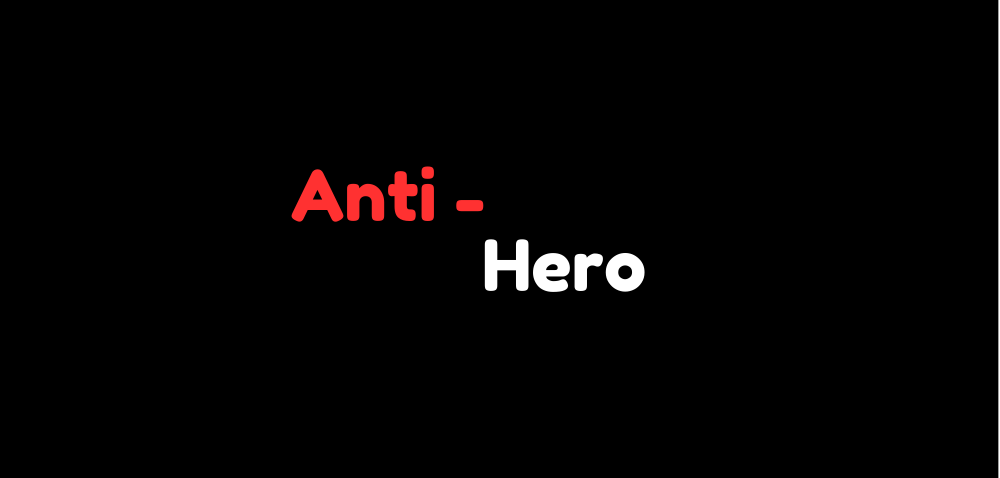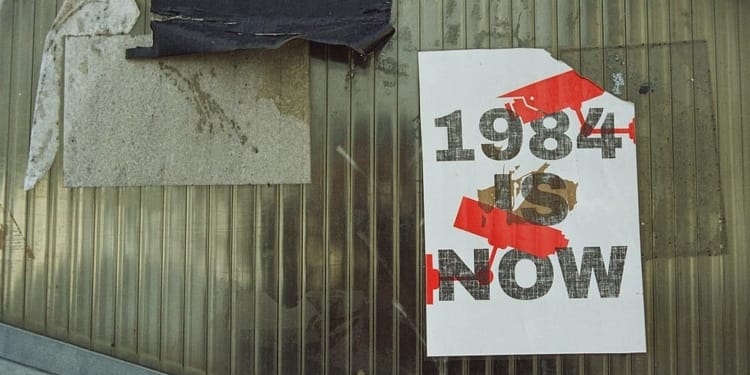The Anti-Hero

I love stories. I'm not picky about storytelling mediums; books, TV, movies, games–they all hold a place in my heart. The more stories I discover, the more I find the anti-hero to be the most compelling character trope.
For much of my life I've explored the stories told in narrative games. I've spent hours wading through the war-torn swamps of Velen as Geralt of Rivia in The Witcher series; hunted dragons in the classic sandbox world of Skyrim; clamored through the dystopian Night City as V in Cyberpunk 2077. Of these three examples, Geralt of Rivia rises to the top; he's an anti-hero in the purest sense–a grizzled, world-weary warrior who balances on the tightrope of moral ambiguity and defies the establishment in pursuit of his own aims. He's real and relatable, prone to succumbing to his own darkness, but driven by an integrity that hides beneath his jaded exterior.
Lately I've been in a TV and movie phase. Specifically, my roommate and I have been working through the best of Prestige TV. We started with The Sopranos (Wow. Just wow), then a brief foray into The Wire, and now we're chugging through Mad Men (also wow). The common thread in these shows? Anti-heroes.
I could devote an entire blog series to the brilliance of HBO's writing and character-building in The Sopranos alone (hint: I just might 🧐). But for now I'll briefly mention the legendary Tony Soprano.
Tony Soprano is as integral to the anti-hero world as Kurt Cobain is integral to the world of grunge music. The towering New Jersey mobster is not a good man. He lies to his friends; steps out on his wife; holds hypocritical standards and prejudices; orchestrates murder. But he also goes to therapy and wrestles with his past in the hope of a better tomorrow. He loves his children. He affectionately looks after a flock of ducks that congregates in his pool. In short, Tony is complicated. Complicated is relatable.
The Classic Definition
This blog wouldn't be the same if I didn't bring in some additional perspective. While examples of anti-heroes can be found in literature as far back as The Epic of Gilgamesh, the textbook definition for such a protagonist is subjective. Jean Racine, a 17th-century French playwright, described three factors that make an effective anti-hero:
💀 The character's journey is doomed from the onset.
🫵 Blames others instead of taking accountability.
🖍️ Offers a critique of societal norms.
The first character who comes to mind that I believe checks all three of these boxes is Breaking Bad's Walter White. Without delving too deeply into spoilers, Walter's cancer diagnosis at the beginning of the show provides a clear ending that looms for the entirety of the show. As the story progresses and Walter descends into his alter-ego, Heisenberg, he continually points the finger at everyone but himself for his unfulfilled life: his wife, Skylar; his troubled former student and current meth cook partner, Jesse Pinkman; and certainly Elliot Schwartz, who Walter resents for stealing both his ideas and former flame. Walt's downward spiral offers many critiques of society, particularly the double-edged sword of scientific ambition.
While I think Walter White's story is less anti-hero and more downright villain, he still strikes the chord of moral ambiguity. This is where my conception of the anti-hero diverges from Racine's. The French playwright's envisioning of an anti-hero is one with tragic undertones, the arc of a morally bankrupt character who crashes and burns of his own accord. To me, anti-heroes operate much more in the grey, with a tinge of hope.
My Four Factors
In honor of Jean Racine's anti-hero checklist, here's mine:
🌋Destructive habits that derail the anti-hero's journey.
🌱Manifestation of virtue.
👤Self-interested aims that generate social critique.
☀️Above all, the freedom of choice.
Let's take Geralt of Rivia, for example.
- His emotions can rule over him–sometimes he loses his temper and navigates a problem with a sword instead of with diplomacy, often times making a situation worse. He becomes infatuated with dangerous women–central to his story is the moment he magically binds his fate to that of Yennifer, a beautiful, manipulative, and ambitious mage that causes much trouble for Geralt.
- Despite his emotional flaws and station as a witcher (mutated monster hunters who are often social pariahs), he is deeply loyal to the select few he calls friends, particularly Ciri, his pseudo daughter. Geralt also honors his debts, even when it is disadvantageous.
- Geralt operates on the fringes of his world. He is a jaded man who has seen the worst in humanity. He gets caught in the ambitious webs of kings and heads of state. We see the wickedness of the world through his eyes. Because of his pessimism, he is reluctant to involve himself with any issues except his own.
- Geralt gets to choose his path. He is responsible for his life. He can be the villain or the hero. He can save a village from a pack of ghouls, or decide it's not his problem.
Relatability
Analysis and critique is subjective, of course. At the end of the day, I think the fundamental metric that defines a compelling character is relatability. Whether in TV, games, plays, or books, an engaging character is one who is relatable. I don't know what it's like to be the head of a mob family in suburban New Jersey, but I can understand Tony Soprano's wrestling with his own self-destructive tendencies, the times when he tries to turn over a new leaf–only to fall back into familiar patterns. I'm not a sword carrying monster hunter who can brew magic potions, but I can empathize with the struggle to control my emotions and the feeling of existing on the outside of society.
Anti-heroes are more accurate reflections of our humanity. Through anti-heroes we are reminded of our ability to choose our own path in the barrage of choices that we make every day. Sometimes we have good intentions, sometimes not. Our days are a mixture of altruism and greed. We handle some situations with wisdom, and others with rash shortsightedness. That's real. That's life.
Till next week,
Ethan Mark
Works Cited
Kennedy, T. V. (2014). ‘No Exit’ in Racine’s “Phèdre”: The Making of the Anti-Hero. The French Review, 88(1), 165–178. http://www.jstor.org/stable/24547701






